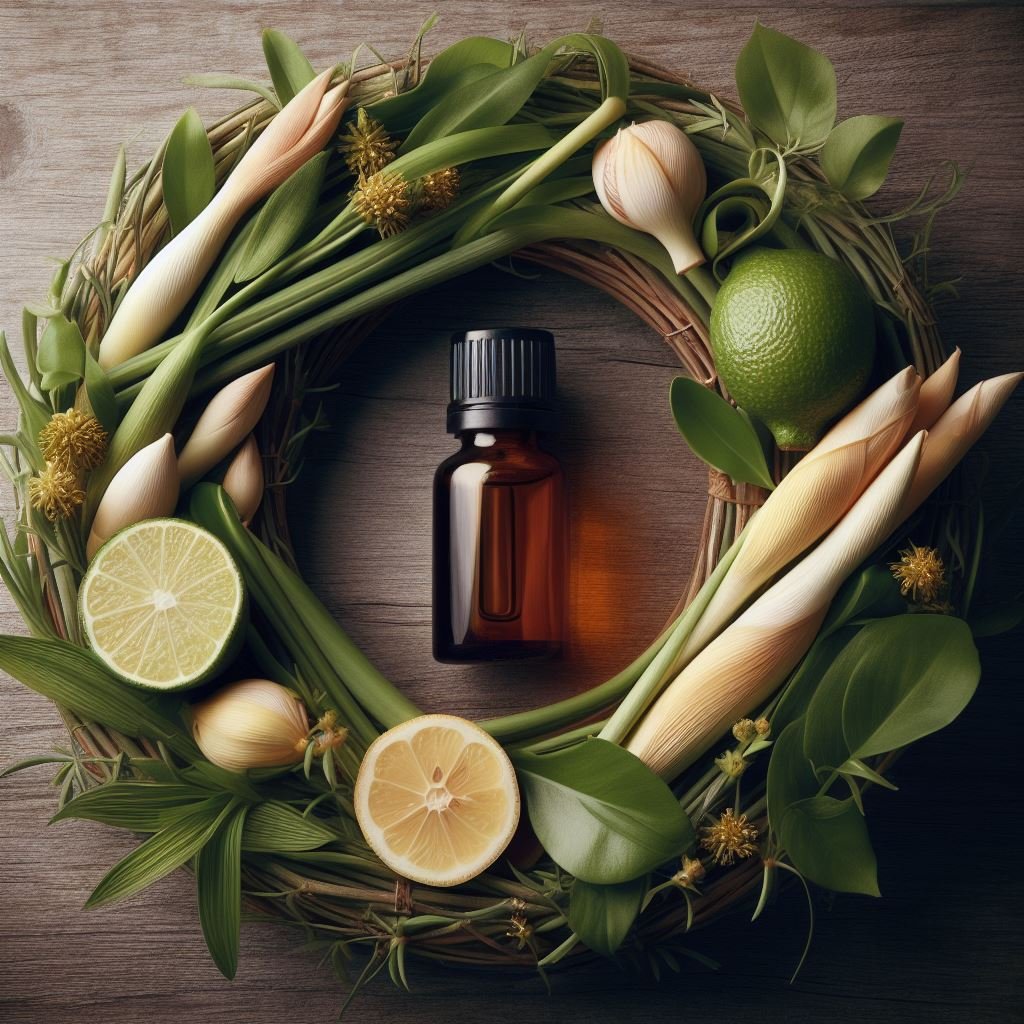What Is Lemongrass Essential Oil?
Lemongrass essential oil is extracted from the leaves of the lemongrass plant, scientifically known as Cymbopogon flexuosus or Cymbopogon citratus. This plant is native to tropical and subtropical regions, such as India, Southeast Asia, and Oceania. The oil itself has a bright or pale yellow color, a thin consistency, and a refreshing lemony scent.
The chemical composition of this fabulous essential oil varies depending on its geographical origin, but it typically contains compounds such as hydrocarbon terpenes, alcohols, ketones, esters, and predominantly aldehydes. The most abundant compound in lemongrass oil is citral, which accounts for approximately 70% to 80% of its composition.
Lemongrass oil is a rich source of essential vitamins and minerals, including vitamin A, vitamin B1, vitamin B2, vitamin B3, vitamin B5, vitamin B6, folate, vitamin C, magnesium, phosphorus, manganese, copper, potassium, calcium, zinc, and iron.
How is Lemongrass Essential Oil Obtained?
Lemongrass essential oil is typically obtained through a process called steam distillation. Here’s a general overview of the steps involved in extracting lemongrass essential oil:
- Harvesting: Lemongrass (Cymbopogon citratus or Cymbopogon flexuosus) is a tall, perennial grass native to tropical regions. The leaves, which contain the essential oil, are usually harvested when the plant is mature.
- Cleaning: The harvested lemongrass is cleaned to remove any dirt or foreign particles. This is usually done by hand or through mechanical means.
- Distillation: The most common method for extracting lemongrass essential oil is steam distillation. In this process, steam is passed through the chopped or crushed lemongrass leaves. The heat from the steam causes the essential oil in the leaves to evaporate.
- Condensation: The steam carrying the essential oil vapor is then cooled down through a condensation process. As the steam cools, it turns into water, and the essential oil separates from the water due to differences in volatility.
- Separation: The essential oil, being lighter than water, floats on the surface of the condensed water. It is then separated from the water, and you’re left with pure lemongrass essential oil.
- Storage: The final product is usually stored in dark glass bottles to protect it from light and temperature changes, which can affect the quality of the essential oil.
It’s important to note that the quality of the essential oil depends on various factors, including the plant’s growing conditions, the time of harvest, and the extraction method. High-quality lemongrass essential oil should have a fresh, lemony scent and is commonly used in aromatherapy, perfumery, and various skincare products due to its pleasant fragrance and potential therapeutic properties.
What is Composition of Lemongrass Essential Oil?
The composition of this marvelous essential oil can vary slightly depending on factors such as the specific species of lemongrass, the region where it is grown, and the extraction method used. However, the primary components of lemongrass essential oil typically include:
- Citral: This is the major component of lemongrass oil and is responsible for its characteristic citrus scent. Citral can exist in two isomeric forms: geranial and neral.
- Geraniol: Another important compound contributing to the citrus and floral notes of the oil.
- Limonene: A common terpene found in many citrus essential oils, limonene adds to the citrus aroma.
- Citronellal: This compound contributes to the lemony fragrance of lemongrass oil and is also found in citronella oil.
- Geranyl acetate: Contributes to the fruity and floral notes of the oil.
- Myrcene: A terpene with a musky, earthy scent that is present in various essential oils.
- Linalool: A common terpene alcohol found in many essential oils, including those of citrus and lavender.
- Terpinolene: This is a minor component but contributes to the overall aroma.
It’s worth noting that these components work synergistically to create the unique fragrance of lemongrass oil. In addition to its pleasant scent, lemongrass oil is known for its potential therapeutic properties, including antimicrobial, anti-inflammatory, and stress-relieving effects. Always ensure that you are using high-quality essential oils from reputable sources, and be mindful of any potential allergic reactions or sensitivities when using them.








